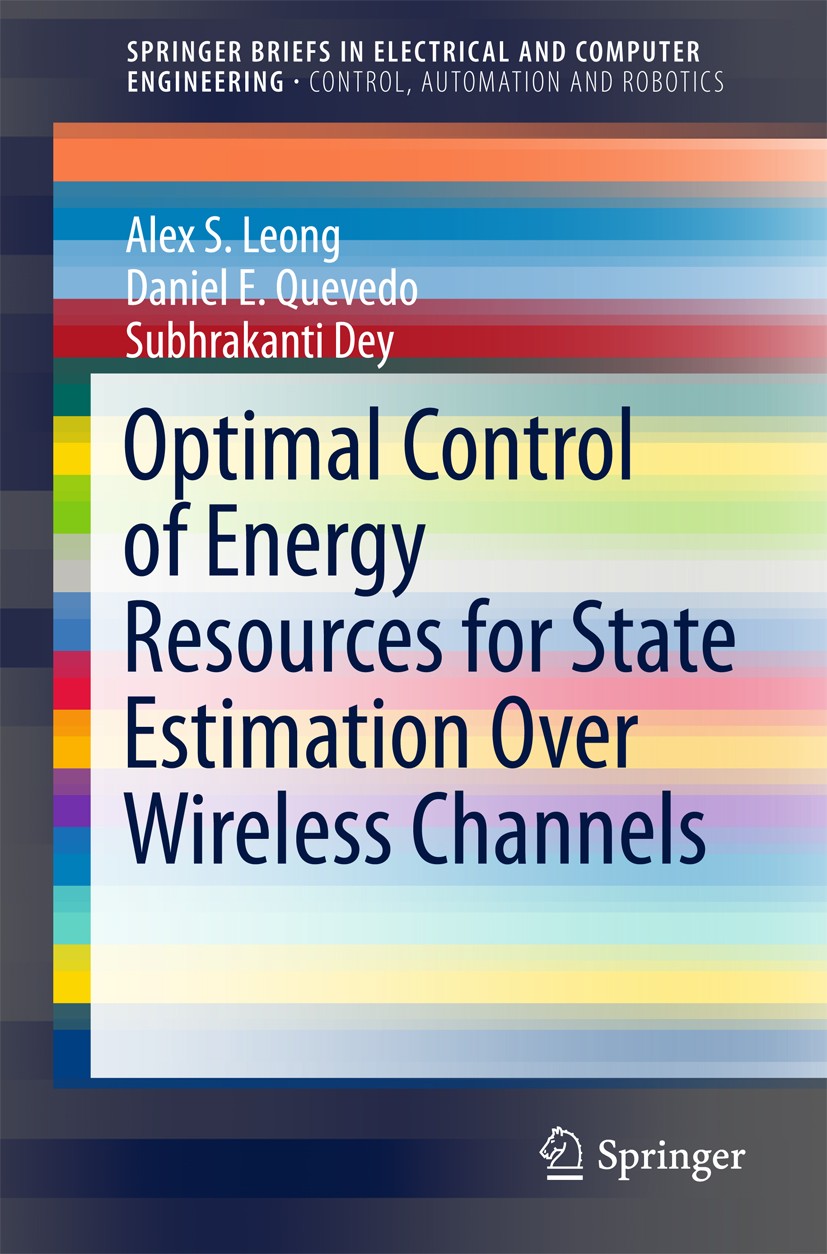| 书目名称 | Optimal Control of Energy Resources for State Estimation Over Wireless Channels |
| 编辑 | Alex S. Leong,Daniel E. Quevedo,Subhrakanti Dey |
| 视频video | http://file.papertrans.cn/703/702829/702829.mp4 |
| 概述 | Introduces the benefits of wireless communications techniques to the study of networked control systems.Shows the reader how power control may be used to mitigate the effects of fading channels in the |
| 丛书名称 | SpringerBriefs in Electrical and Computer Engineering |
| 图书封面 |  |
| 描述 | .This brief introduces wireless communications ideas and techniques into the study of networked control systems. It focuses on state estimation problems in which sensor measurements (or related quantities) are transmitted over wireless links to a central observer. ..Wireless communications techniques are used for energy resource management in order to improve the performance of the estimator when transmission occurs over packet dropping links, taking energy use into account explicitly in Kalman filtering and control. The brief allows a reduction in the conservatism of control designs by taking advantage of the assumed..The brief shows how energy-harvesting-based rechargeable batteries or storage devices can offer significant advantages in the deployment of large-scale wireless sensor and actuator networks by avoiding the cost-prohibitive task of battery replacement and allowing self-sustaining sensor to be operation. In contrast with research on energy harvesting largelyfocused on resource allocation for wireless communication systems design, this brief optimizes estimation objectives such as minimizing the expected estimation error covariance. The resulting power control problems |
| 出版日期 | Book 2018 |
| 关键词 | Networked Control Systems; Remote Estimation; Fading Channels; Power Control; Energy Harvesting; Stochast |
| 版次 | 1 |
| doi | https://doi.org/10.1007/978-3-319-65614-4 |
| isbn_softcover | 978-3-319-65613-7 |
| isbn_ebook | 978-3-319-65614-4Series ISSN 2191-8112 Series E-ISSN 2191-8120 |
| issn_series | 2191-8112 |
| copyright | The Author(s) 2018 |
 |Archiver|手机版|小黑屋|
派博传思国际
( 京公网安备110108008328)
GMT+8, 2026-2-9 04:20
|Archiver|手机版|小黑屋|
派博传思国际
( 京公网安备110108008328)
GMT+8, 2026-2-9 04:20


